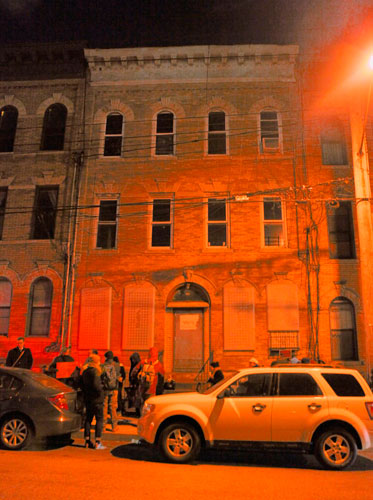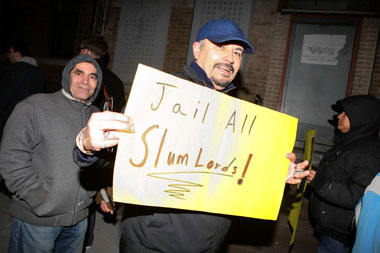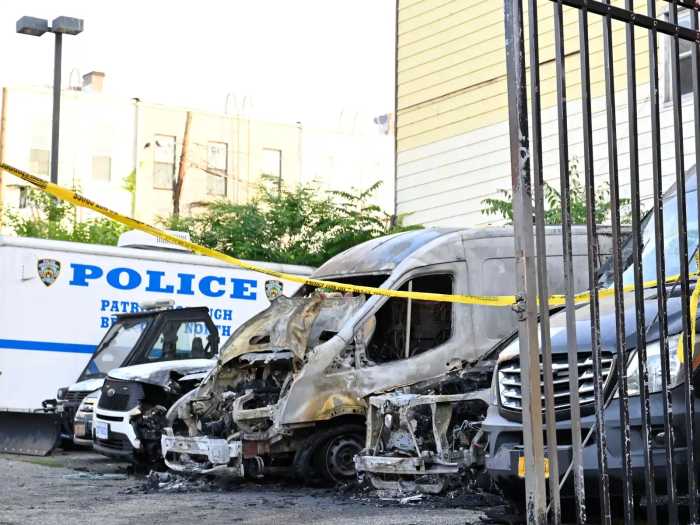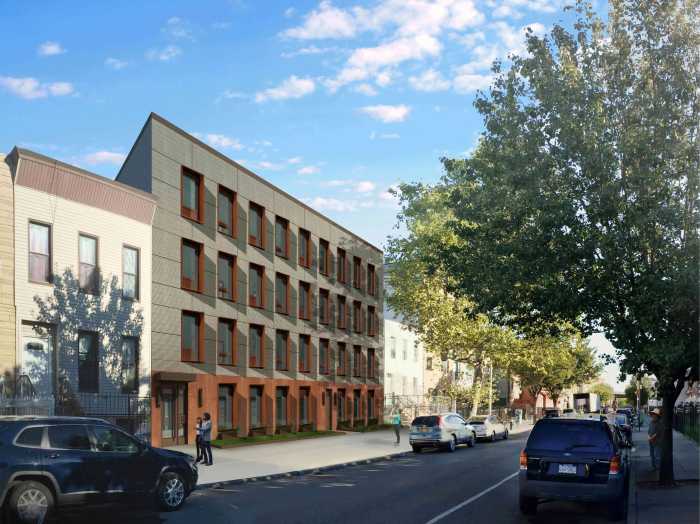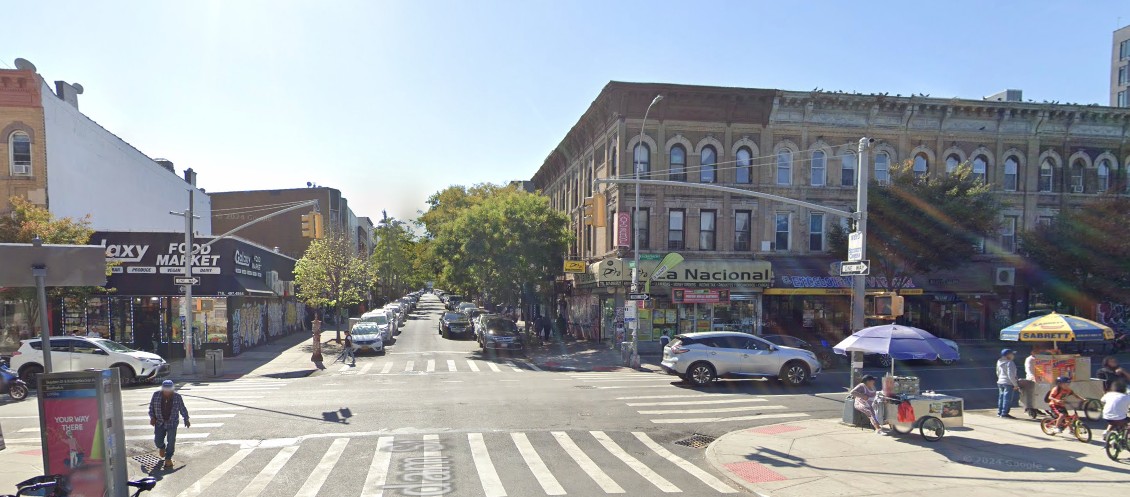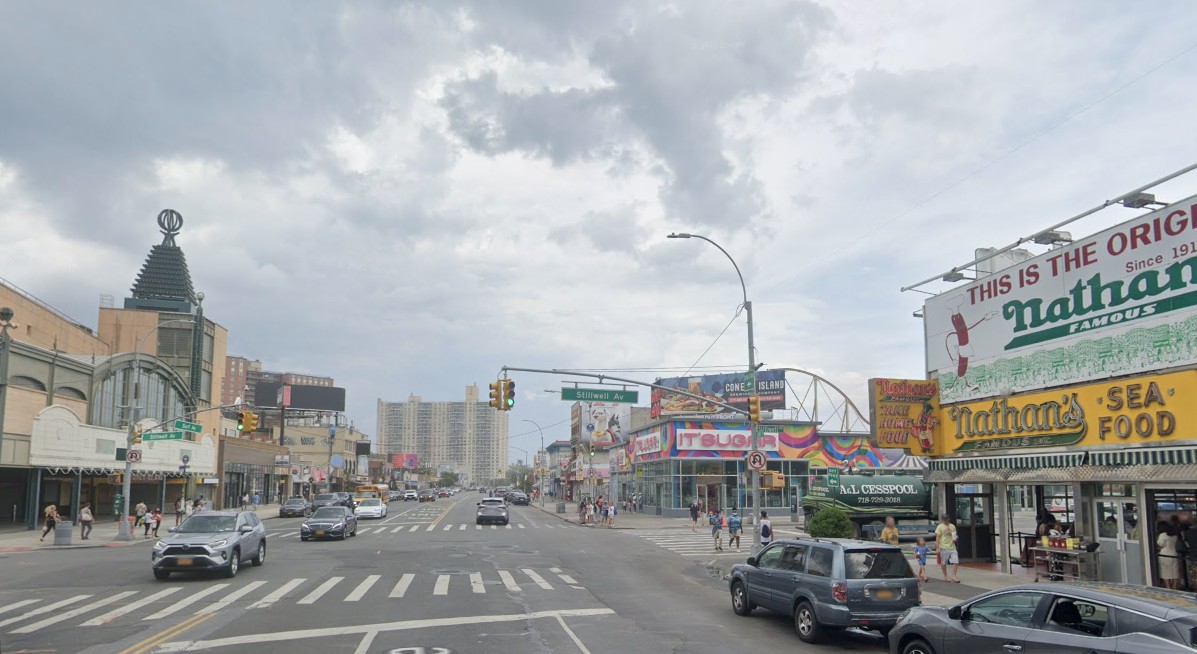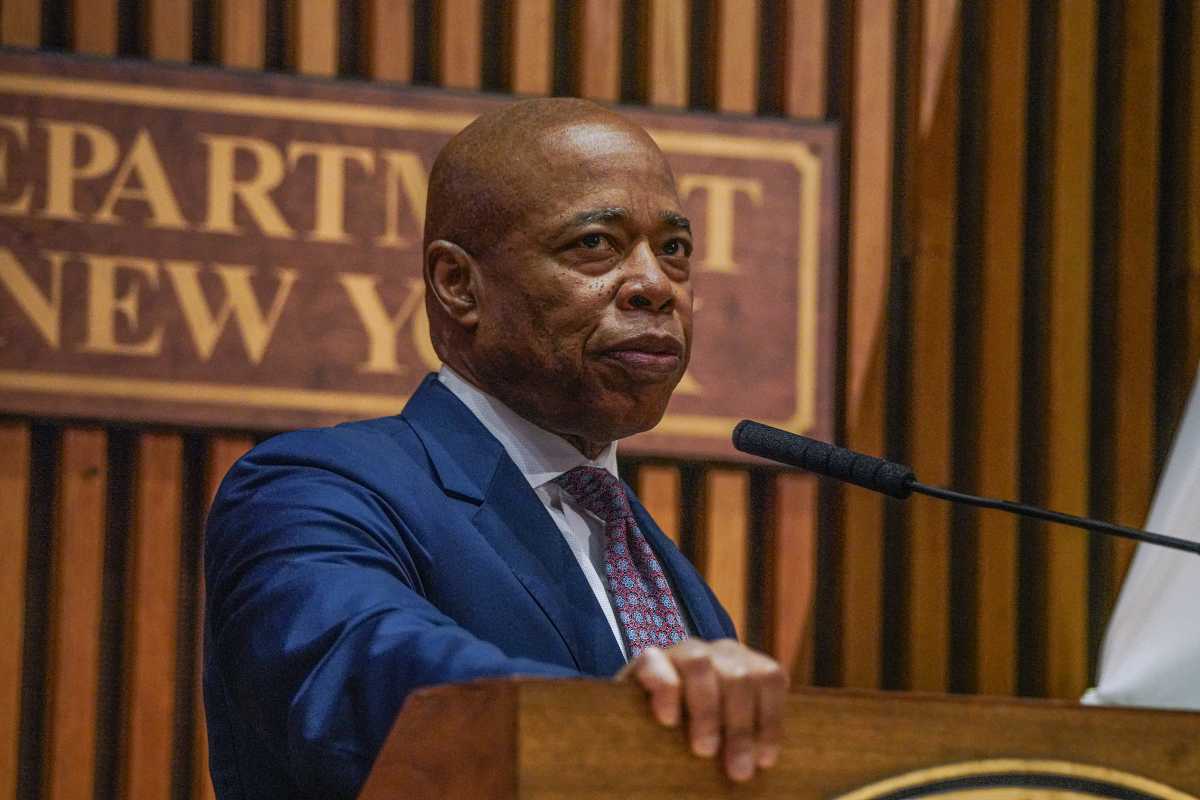Between long-time renters and starry-eyed new arrivals, when it comes to Bushwick real estate, everyone is getting screwed.
Some of landlord Aron Stark’s tenants’ leases, presented by Legal Aid lawyer Sarah Robinson in court, show his rental properties in 2012 populated by unrelated roommates paying an average of $1,800 for two-and-three bedroom apartments, in what some renters describe as squalid conditions.
The four properties have 36 open buildings department violations, including for a cracked ceiling, missing railings, faulty boilers, and exposed wiring, and the row house at 1339 Hancock St. has racked up $24,300 in fines, city records show. Some of the fines are directed at the former owner.
In a court ruling outlining Stark’s apparently fraudulent collection of public-housing money meant for poor people, one name that appears is David Perezcassar, who lived in a three-bedroom owned by Stark across Hancock Street with Brooklyn Courier reporter Max Jaeger and another friend.
Perezcassar said the apartment lacked electricity for days after they moved in, and had no gas for the first month. The overhead lights were bare bulbs — Stark told them to buy light fixtures themselves — and some of the apartment was downright bizarre, he said.
“There was a room that was half blue and half white — the painting just stopped,” David Perezcassar said. “It was really weird.”
In the two years Perezcassar lived there, Stark seldom fixed anything, forcing the three 20-something transplants to do the work themselves, Perezcassar claimed. Nevertheless, he said, the rent went up $800.
A contractor who said he has worked for Stark reiterated the tenant’s characterization of Stark as unreliable.
“He’s grimy,” said the worker, who asked not to be identified because he works in the Hasidic Jewish community that Stark is a part of. “Not trustworthy at all.”
Stark’s years of collecting Section 8 housing vouchers came to light as part of his attempt to evict one of his rent-stabilized tenants, an attempt a judge ultimately ruled was made in bad faith.
The decision comes as landlords nearby are allegedly taking even more drastic measures to remove low-paying renters and take advantage of the area’s overheated real estate market. In Greenpoint, tenants of Joel and Aaron Israel say the pair had their boiler and electrical system axed to force the city to evict them. Tenants of the Israels in Bushwick say they hired a contractor to rip a massive hole in an apartment floor to pressure them out. The Israels deny the accusations.
Other landlords are accused of bribing building inspectors to fraudulently evict tenants in Bushwick and Williamsburg.
The ruling also closely follows the formation of a task force including members of the offices of Mayor DeBlasio, Gov. Cuomo, and Attorney General Eric Schneiderman to combat tenant harassment, a task up till now dealt with by the buildings department and Department of Housing Preservation and Development, which respond to housing conditions on a case-by-case basis, sometimes with fines.
In Bushwick, two-bedrooms now rent for an average of $2,291, up from $2,121in the summer of 2013, according to industry data. Comparable units are averaging $4,109 in Williamsburg, and $3,215 in Greenpoint, the data show.
Robinson, the tenant lawyer, said the rent-regulation rules — which allow landlords to increase the rent by 20 percent when tenants vacate rent-stabilized apartments, to add an additional percentage based on the cost of renovations, and to deregulate apartments when they surpass a set rent ceiling — encourage fraud and tenant harassment.
“That incentivizes the landlord to register the apartment at a higher rate than what they’re actually renting it out for, and to harass the tenant into leaving so that they can do a whitewash job of repairs and move someone who’s recently been displaced from Manhattan or Williamsburg in there,” she said.
Longtime residents with low rents aren’t the only ones victimized in the current rental market, Perezcassar said, feeling reflective after reliving his time as a tenant of Stark’s.
“It’s just a cycle of bringing in young Brooklyn kids and spitting them out,” he said. “A lot of landlords are taking advantage of kids coming to New York to pursue their dreams.”
